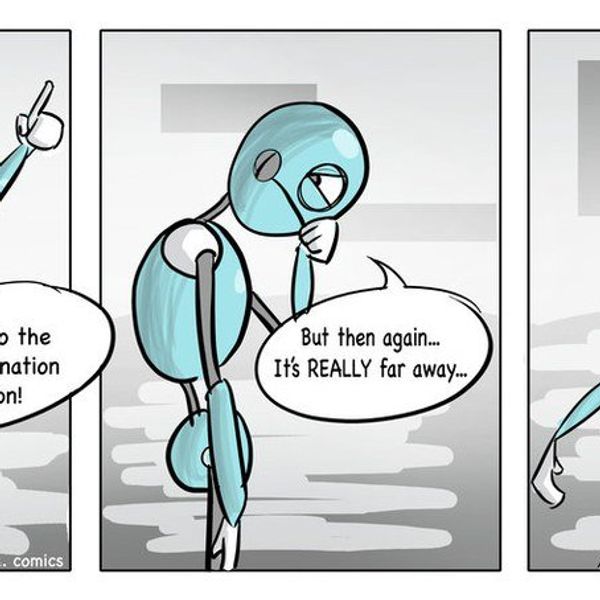Nothing is more frustrating than asking a question only to have it ignored or dismissed. Here are some suggestions for people who are looking to practice intellectual empathy and encourage curious minds to keep asking the questions that are meaningful to them.
Reserve judgement.
If this person is taking the time to ask you a question, there’s a reason for it. There’s no reason to expect that someone would have the same knowledge as you, or that they would understand it the same way. Comments like “Weren’t you paying attention in lecture?” or “How did you get this far in the year/major/life without knowing this?” only succeed in making the question asker wish they had posed their query to anyone -- seriously, anyone -- else.
Exercise patience -- let people complete their questions.
If you haven't heard it, you can’t answer anyone’s question but your own. You could miss out on a real learning opportunity by cutting someone’s question short, and you’ll waste your time and theirs if they have to ask someone else.
Avoid saying “Oh, that’s so easy!”
My superstar mother taught me this many moons ago. While that may seem like an encouraging thing to tell someone who is learning how to do something that’s like second nature to you, it can be intimidating and incredibly discouraging when it’s not easy for them on their first time. If you’re having a good time with it, it’s because the human mind is an incredible thing and it can do incredible things with the right guidance and lots of practice. Offer the guidance that will make their way easier.
Repeat the question back.
Make sure you’re steering them in the right direction by giving your question asker the opportunity to clarify. And if the question isn’t clear, feel free to asks questions of your own so you can get them the information that’s going to be helpful to them!
Give them the information they’re asking for, not the information you think they’re asking for. That’s a very annoying tendency, and it doesn’t go over well at parties. If your question asker isn’t as sophisticated as you in their thinking, answering a question they aren’t ready for isn’t going to get them there any faster and may confuse them. Wow, they thought you could help them get to your level of understanding! How flattering! Or, maybe they are thinking about this topic with a level of sophistication comparable to Einstein and are about to present you with the next great scientific breakthrough, if you could just tell them, please, if that number in the notes is a four or a nine.
Admit when you don’t know the answer.
Please don’t send me hunting for snipes in the Serengeti, only to find out they live in my backyard. Let me ask someone who is going to have information that gets me where I’m going.
Check for understanding.
Perfect for lengthy explanations or multi-step processes, a simple “Are you with me?” goes a long way. It’s also helpful to make sure they know exactly what you’re referencing, so try to use precise language and assume as little prior information as possible.
Flip the dialogue.
Asking someone to explain what they know and what they’ve tried can help you diagnose the problem they’re experiencing if they themselves can’t articulate it. If you’ve ever called an IT company for help with a computer, you’ll realize that even though they have the answers, they let you do most of the talking.
Offer to answer follow up questions!
For many people, asking questions prompts a “Sorry to bother you” response that can only be assuaged by a sincere “Let me know if you have any more questions!”
Suggest an alternative source, especially if the person seems as confused as they were when you started explaining. Remember how not all students learn the same way? That doesn’t change in college! A smarty pants friend of mine used videos from sites like Khan Academy to break down videos. I work best when I try on my own, digest and discuss with a buddy.




















